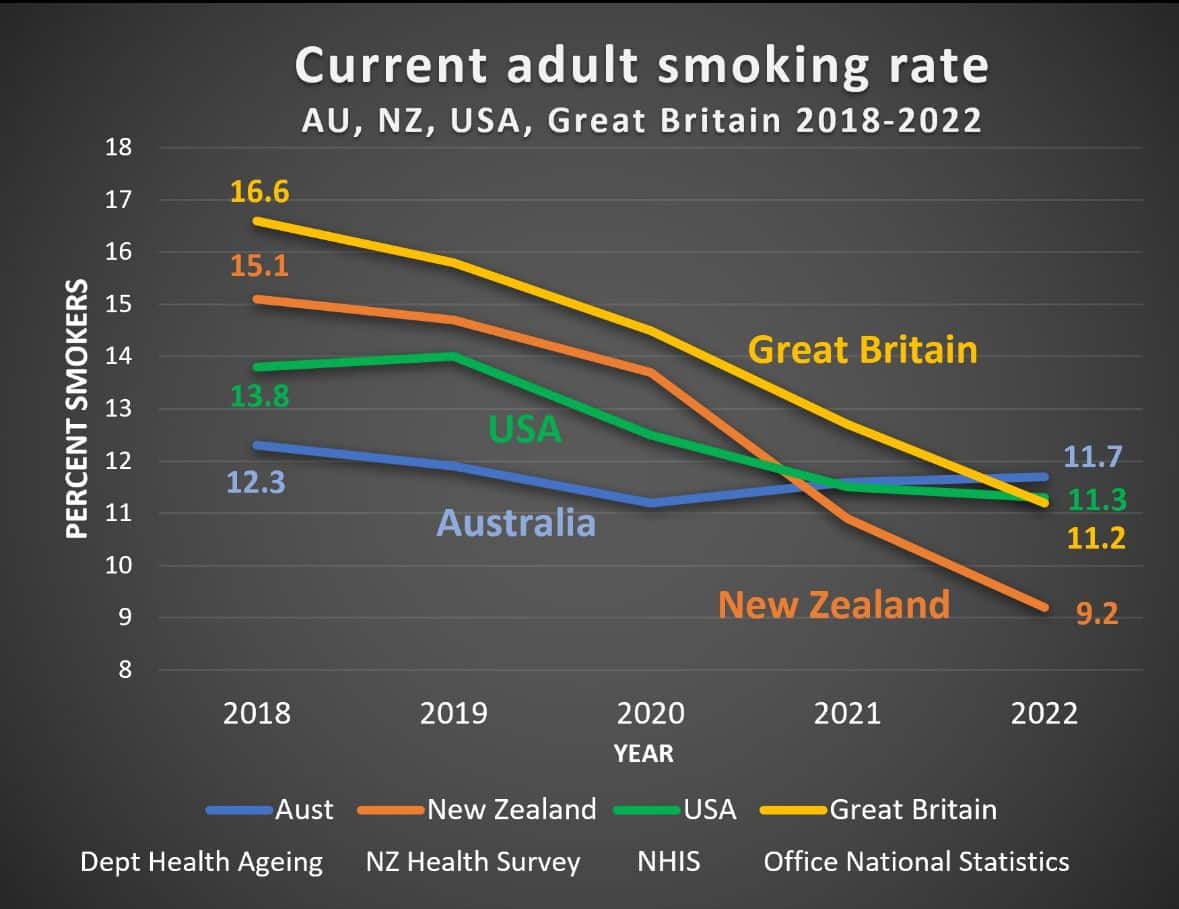Damien Bové, ADACT’s Chief Regulatory Officer & Scientific Advisor discusses the future of vaping
There has been chatter in the vaping industry about a possible ban on disposables, but is this just the start of a challenging time for the vape industry and what we need to be thinking about over the next few months and years? After being reported in several newspapers that the prime minister Rishi Sunak, was going to start a consultation into a possible ban on disposables, the industry has been on tenterhooks and the UKVIA has been in all the media outlets putting the case forward that such a ban would be counter productive for public health.
Then, things went quiet and the considered opinion was that the ban on disposables had blown over. However, following the prime minster’s speech at the Conservative Party conference, it’s clear that the radio silence was just to prevent spoilers for his big speech. Rishi Sunak then went onto announce he would be looking at vaping in youth, paying attention to flavours and disposables amongst other things, and now the news has broken cover we can clearly see what is under review:
“The call for evidence on youth vaping has highlighted a need to look at flavours, so restricting flavours has the potential to significantly reduce youth vaping,” says the government press release. It was announced that the government is considering new legislation to regulate vape flavours and their descriptions. The government has acknowledged that they need to avoid un-intended consequences on adult smoking rates so will prepare some detailed proposals for a public consultation. Will this be a ban on non-tobacco flavours, or just how flavours are presented?
It is well recognised that there is simply not the data to support the industries position that flavours deliver a massive benefit to adults, or that adults will revert to smoking should flavours be restricted. Efforts to get funding in place for the studies needed have so far come to nothing, is industry prepared to invest in their own future. From past experience no – most will leave all the heavy lifting to the few.
Other parts of the review include packaging and product presentation to tackle youth attracting products. The issue of restrictions on packaging is that they risk taring vaping with the smoking brush and creating the impression in the consumers mind that vaping is as or more dangerous than smoking. This possible confusion is dangerous and counterproductive, so this is a very difficult and thorny issues where getting it wrong can have disastrous impact on public health.
The issue of a ban on disposables is the main thorny issue that has been on peoples’ minds of late. From my discussions about half the industry is in favour of such a ban and the other half is against it. Some see it as the thin end of the wedge, ‘First they came for disposables and I did nothing, then they came for flavours and my business was taken away’. Others say all the value is being stripped out of the UK industry and it’s just transferring huge sums to China every week and leaving a pittance in the UK industry.
A ban on disposables will re-address the balance and bring the value chain back on these shores. This is set against a background where disposables are doing a huge amount of good for public health getting smokers to transition to vaping, but can pod systems achieve the same without the environmental damage? Will pods just fill the gap left behind by disposables and prevent a ban achieving its goals on youth access? Juul a notable pod system in the states was found to be just as problematic before disposables arrived in the USA, and open systems can be un appealing to consumers, so there is a lot to play for.
Enforcement
Enforcement is seen by industry as key to overcoming youth access and as we know at the moment kids are getting hold of vapes with relative ease. extra funding for enforcement, a proposed £30million, is shared across vaping and illegal tobacco, so will it have the impact needed, that remains to be seen. Large fines and licensed premises are being encouraged by industry but how will this pan out? Will a failed enforcement campaign just make an outright ban look more appealing, industry needs to be careful of unintended consequences when pointing out failures on enforcement with a loud voice?
This is all set against funding flooding into the UK from prohibitionists in the USA. Organisations and individuals in the USA, such as Bloomberg and Smoke Free Kids – and astonishingly lead by the WHO – who are in open denial over the science of tobacco harm reduction, and are pushing a no nicotine at any costs agenda have largely wone in the USA with the industry now mostly operating illegally except for a few tobacco companies, have turned their attention to the UK.
The UK is largely seen as the global flag barer for tobacco harm reduction and the benefits that vaping can bring to public health. Pouring money into bad science and misleading PR, these NGOs want to silence the good news coming out of the UK, before it shines a light on how US policy is actually damaging the health of their citizens and the public health bodies wake up to the damage being done and revers their harmful policies.
As can be seen in the graphic below, countries like the USA and Australia that have not embraced vaping are falling behind in smoke free future and countries with similar demographics like the UK and New Zealand where vaping is seen as a tool in the tobacco harm reduction tool box are surging ahead, the vested interest groups feel the need to stop this good news before their own duplicity is shown to the world.

Take action
There is much to tackle over the next 12 months and some companies are going to be fighting for their survival. So if your not a member of an industry association, like the UKVIA, I would recommend you get involved in fighting for your industry. The time to get off the fence has come. A ban on flavours will decimate the UK industry and hand the market over to big tobacco, and ban on disposables is debatable but could be the thin end of the wedge, and packaging restrictions if not handled carefully could do huge damage to public health. Indeed this could be seen as the end-of-days for the UK vape industry.
Author: Damien Bové, BSc, MSc – Chief Regulatory & Scientific Advisor, ADACT Medical
Other related articles:







